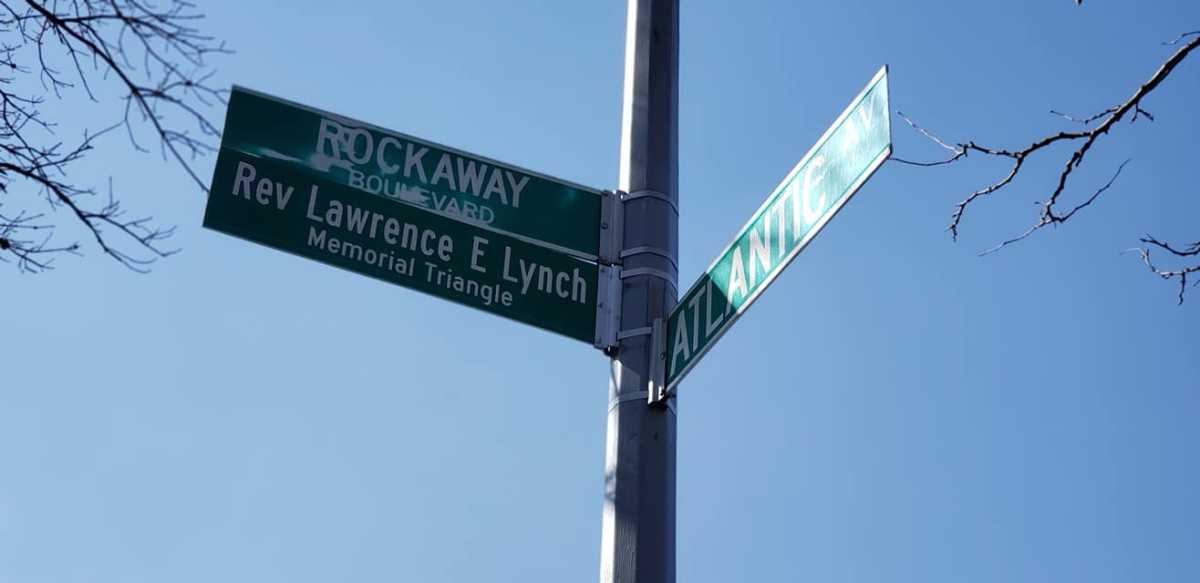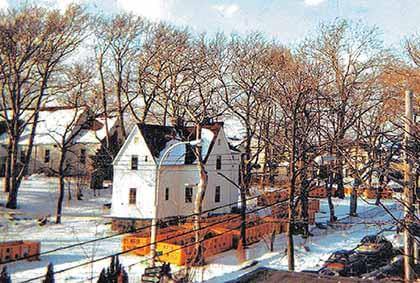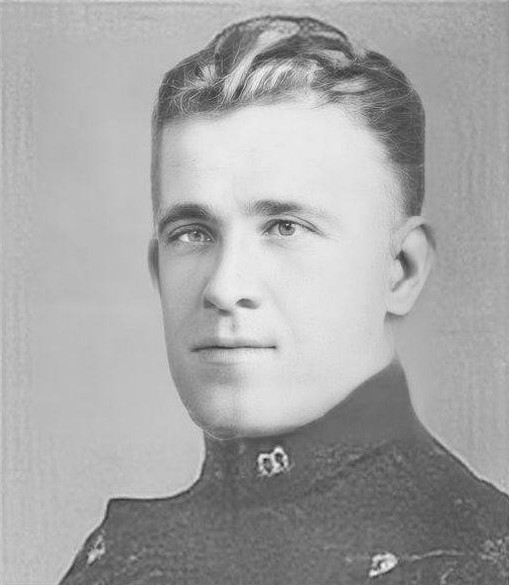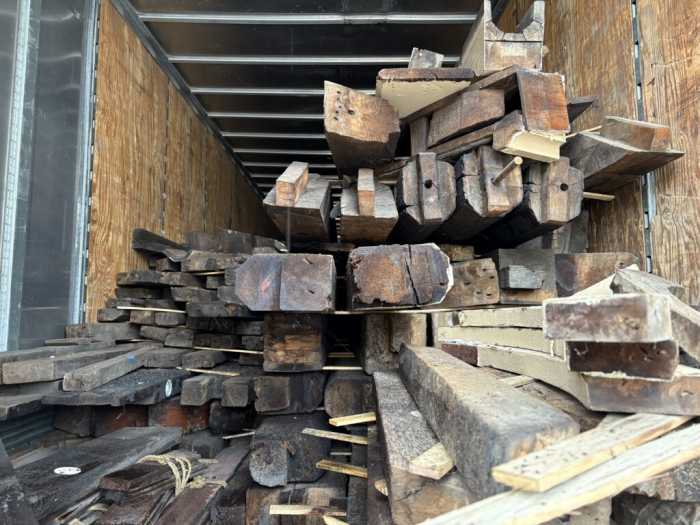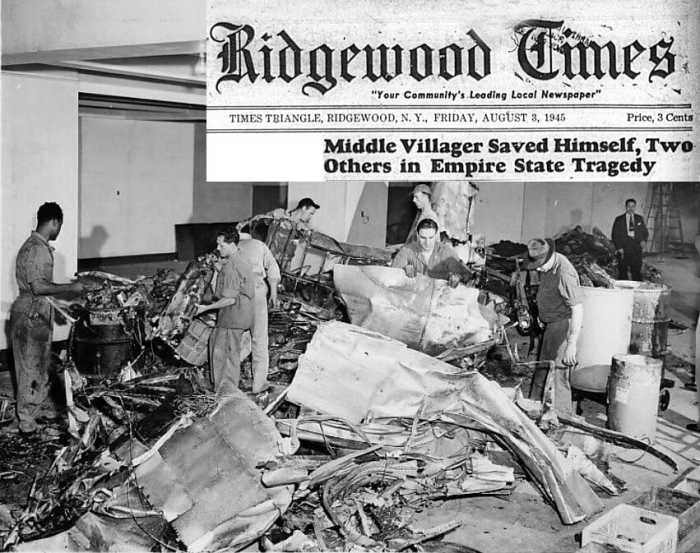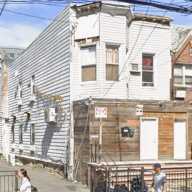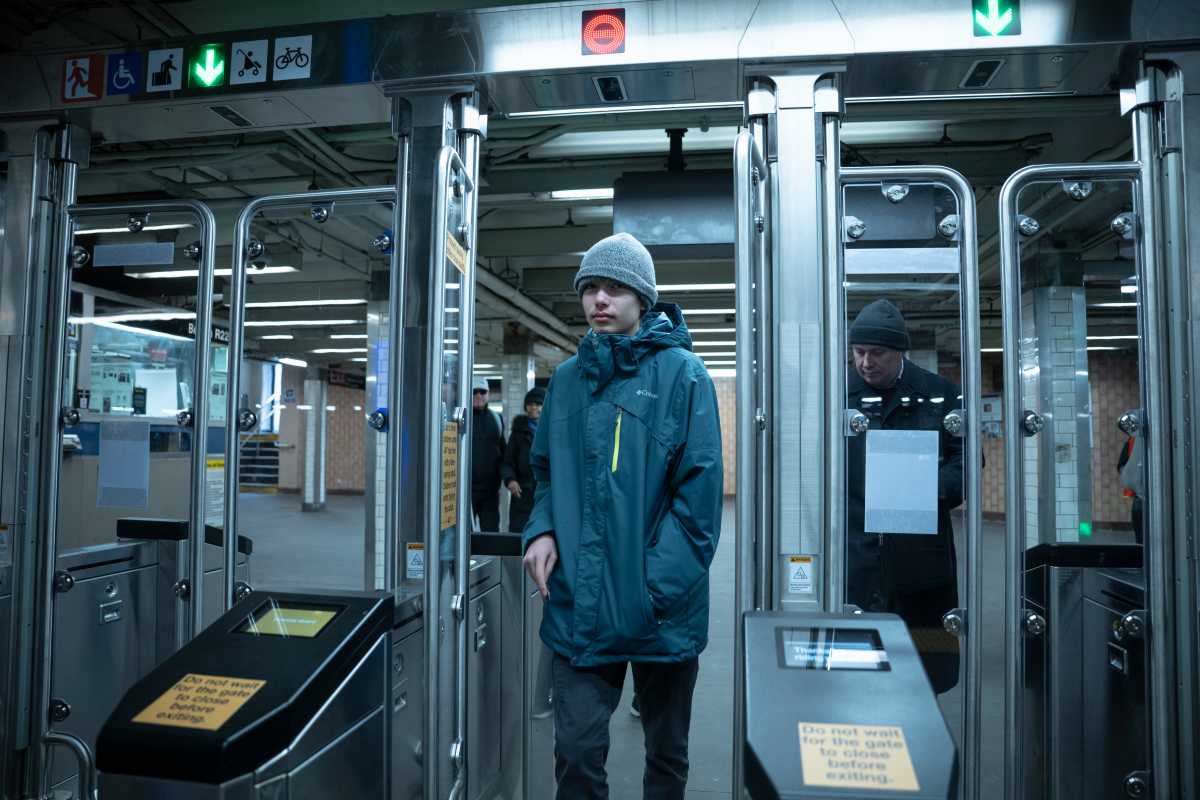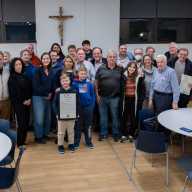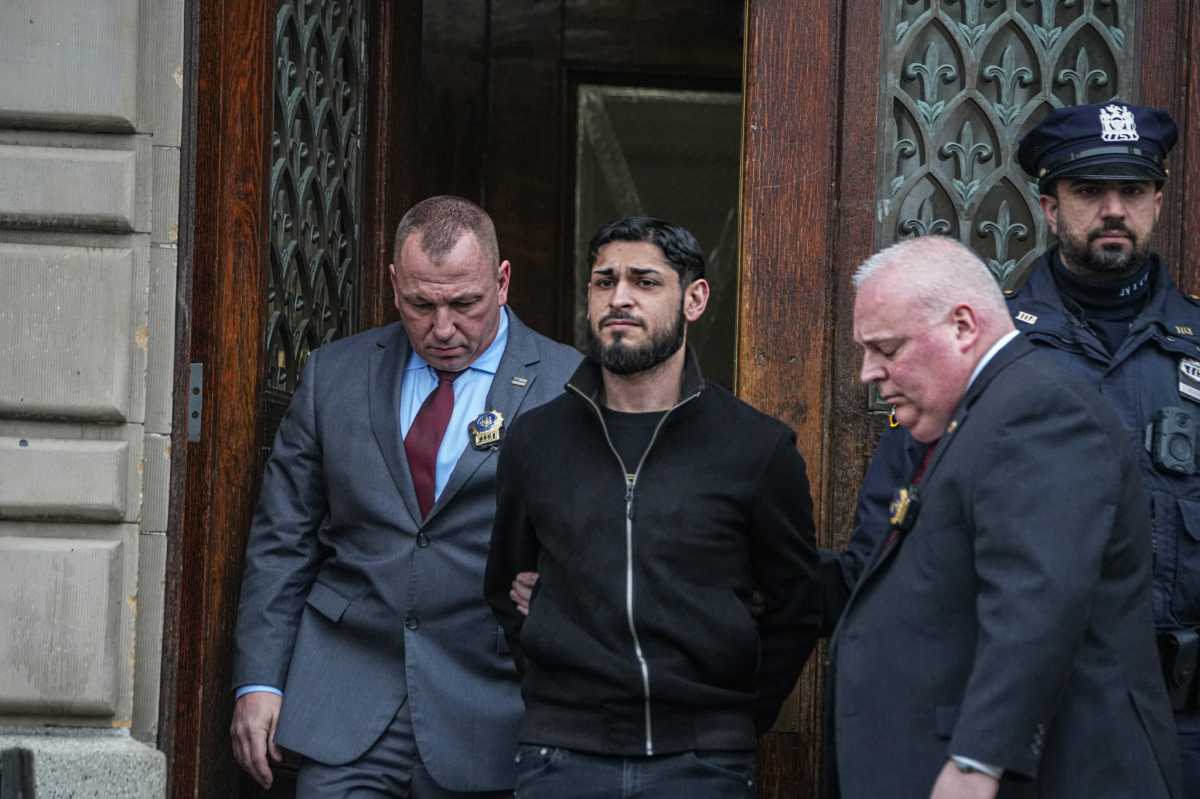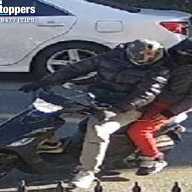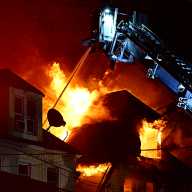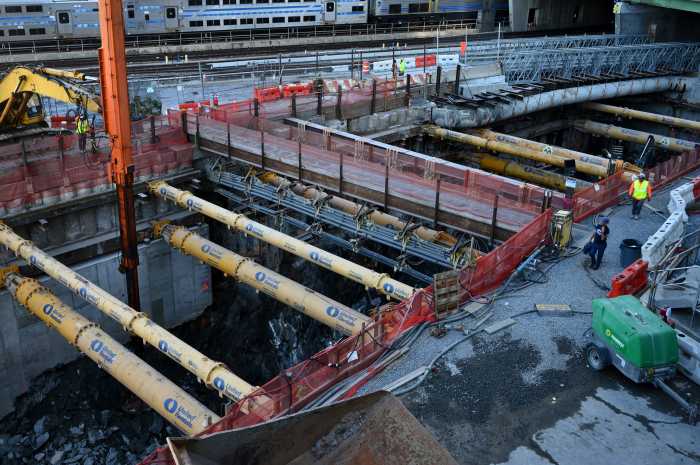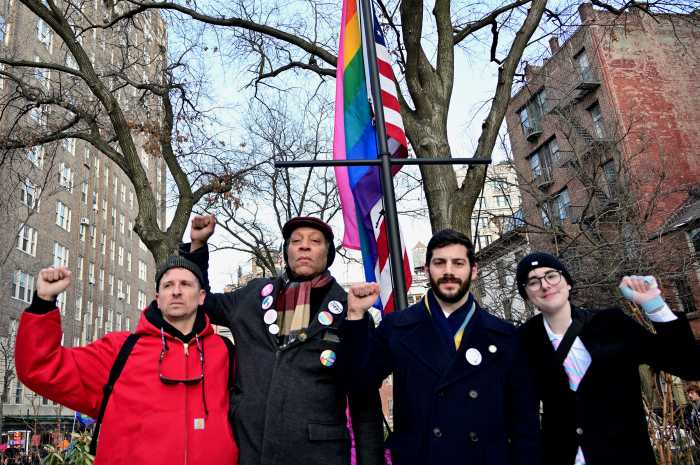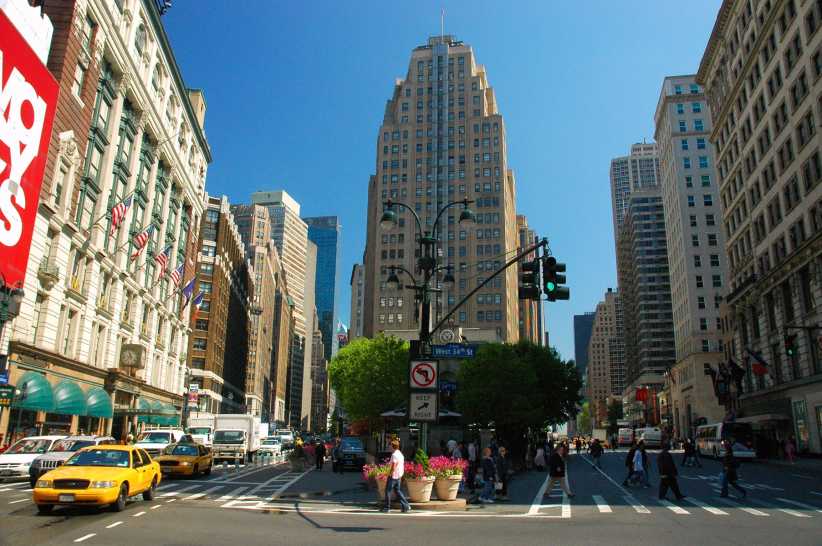This year marks the 80th anniversary of the Battle of Okinawa, the final major battle of World War II and one of the deadliest, with over 12,000 U.S. soldiers killed.
Among them was a tough Irish kid from Elderts Lane, one of twelve children born to a steadfast New York City fireman and his wife, who had emigrated from County Cavan, Ireland.
He had many nicknames throughout his life, including “Holy Hurricane” and “Father Cyclone.” He was a special man, honored today by a triangle nestled between three neighborhoods – Cypress Hills, Woodhaven, and Ozone Park.
This man was beloved in life and remembered in death, especially at this time of year. This is the story of a tough Irish priest named Father Lawrence Lynch.
As a boy, he served as an altar boy at the Catholic Church of Saint Sylvester in Brooklyn, just around the corner from his home. His name was Lawrence Edward Lynch, and he was a hero.
When assigned to the 69th Infantry Regiment, he stepped into the formidable shoes of the famous Father Duffy, immortalized in the film “The Fighting 69th,” starring James Cagney and Pat O’Brien. According to those who knew him, he filled those shoes admirably.
Brigadier General Julius Klein, his commanding officer in the Pacific during World War II, recalled Father Lynch’s fierce commitment to justice. He once stormed into Klein’s office to advocate for a Jewish soldier he believed had been unfairly passed over for promotion.
“It never mattered to him whether a soul was white or black, Jew or Christian, or unbeliever,” General Klein later said. “To him, each human being was simply a child of God.”
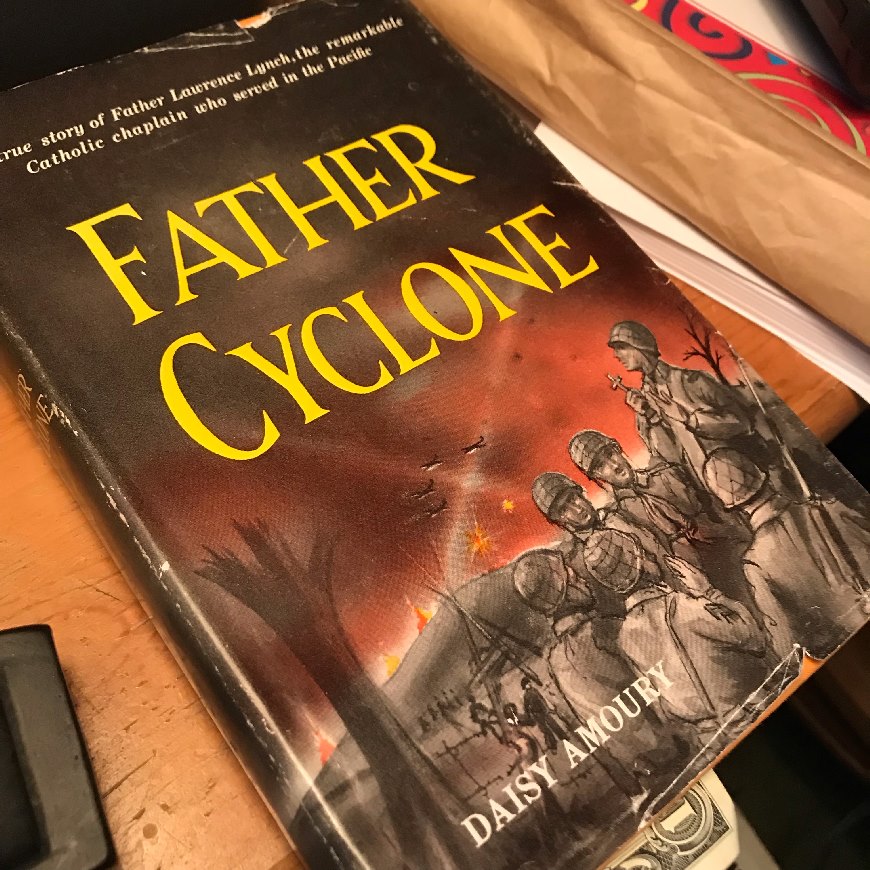
Klein and Lynch were together on a rescue ship responding to the SS Elihu Thompson, a Liberty ship that struck a mine on Sept. 25, 1944. Eleven young men perished, and 22 were declared missing. As Klein coordinated the rescue, Father Lynch tended to the mortally wounded, offering comfort and holding their hands so they would not die alone.
“Ego te absolvo,” he whispered, granting absolution to those breathing their last. One dying sailor, who was Jewish, asked for a rabbi. None were available, so Father Lynch took his hand and softly recited “Sh’ma Yisrael, Adonai Eloheinu, Adonai Echad.” The soldier passed away just as the prayer ended. Deeply moved, Klein never forgot the moment, often calling Father Lynch his “favorite Irish rabbi.”
No matter who you were or what you believed, Father Lynch was there in your time of need. A priest first and a soldier second, he shared the bravery of the men he served alongside, earning five citations for valor.
That courage carried him and countless others to the island of Okinawa, a pivotal battleground in the planned invasion of Japan. For weeks, the fighting raged, and Father Lynch constantly sought out battalions facing the heaviest combat. Amidst relentless fire, he provided comfort to the wounded and last rites to the fallen—hundreds upon hundreds of American soldiers who perished in that battle.
On April 25, 1945, as Japanese artillery rained down on his battalion, a soldier nearby cried out in pain. The tough Irish priest from Elderts Lane rushed to his side to administer last rites. A second shell struck, killing them both instantly. Father Lawrence Edward Lynch was 38 years old.
By the end of June, with victory secured, more than 4,000 servicemen attended a mass at his graveside in Okinawa. Back home, even long after the war, a steady stream of veterans visited his parents to pay their respects.
In his honor, a local youth football league named Lynvets was established—a tribute to both him and other veterans. Additionally, a small piece of land near the border of Woodhaven, Ozone Park, and Brooklyn was dedicated to his memory. A triangle at Atlantic Avenue and Rockaway Boulevard was officially named for him in a grand parade on October 8, 1949.
Over time, the sign disappeared, and Father Lynch’s story faded from public memory. However, on March 9, 2019, at the request of the Woodhaven Cultural and Historical Society, the triangle was rededicated in his name. Members of the Lynch family, along with community leaders from Woodhaven and Ozone Park, gathered once again to honor the local Irish boy turned hero priest—the man they called Father Cyclone.

